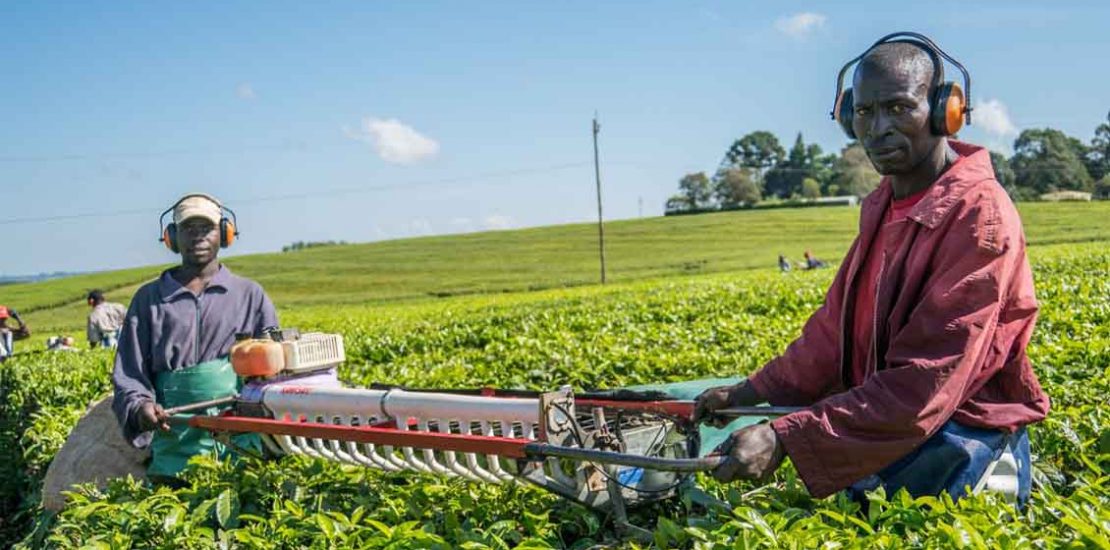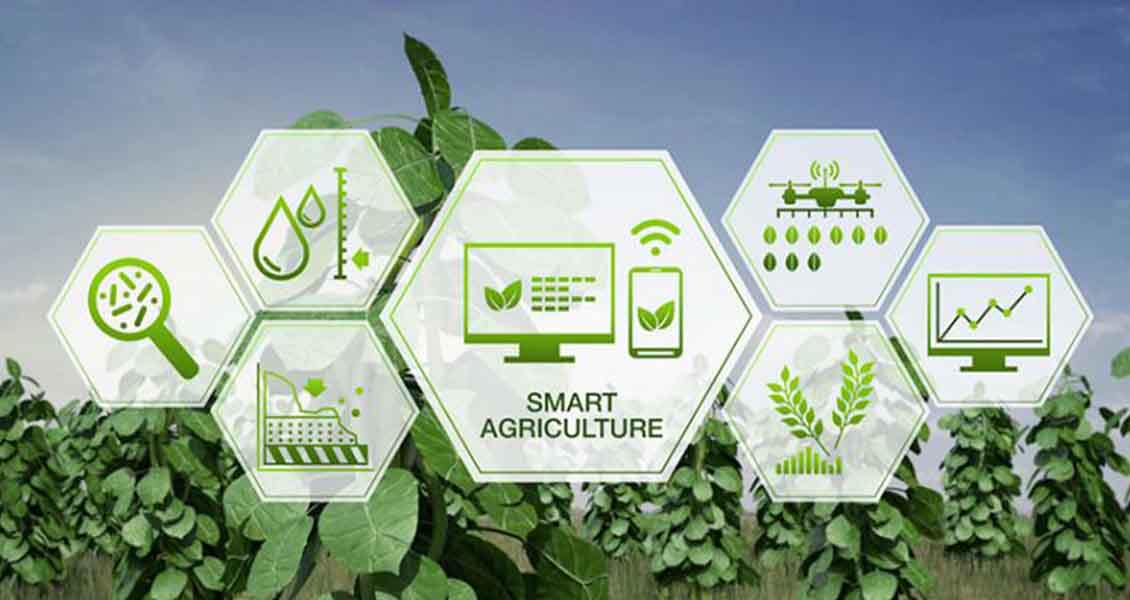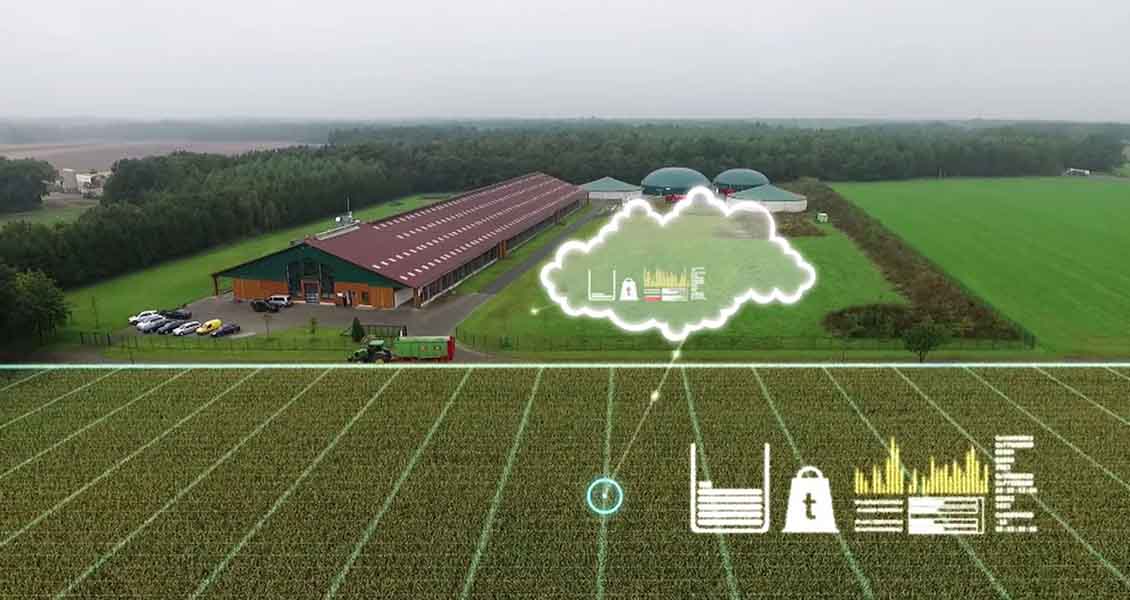Africa’s Digital Agriculture: Facilitating Inclusion For Smallholder Farmers
- October 16, 2020
- Posted by: Kedrus
- Categories: Digital Transformation, Uncategorized

Africa’s demand for food is growing. Between 2010 and 2030, the total worth of its food industry is projected to hit the $1 trillion mark. While existing technologies like improved seeds and fertilizers will be critical to meeting this demand, Africa’s farmers will need additional new tools to improve yields and get their goods to market. Digitalization can deliver these tools. Digital technology will play no small role in transforming Africa’s agricultural sector. Its benefits cuts across several areas, from connecting communities of farmers across widely dispersed geographic locations to learning new skills and improving how smallholder farmers receive and deliver their services.
Digitalization refers to everything from delivering farming advice via text messaging to interactive voice response. It also includes smartphone applications that link farmers to multimedia advisory content, farm inputs, and buyers. And it covers the use of drones and satellite systems to inform farmer activities, such as crops, times to plant, types, and amounts of inputs to use. It is absolutely essential to place smallholders front and center when designing policies and specific digital products meant to help them. In this way, the digital transformation will reflect the users’ needs.
Our conversation will focus on how to deploy digital tools and technology in such a way that enables smallholder farmers to achieve maximum productivity. There have been some very notable efforts towards the digital inclusion of smallholder farmers within Africa. For example, about 33 million smallholder farmers in Africa are currently registered for services that directly impact their productivity like weather updates and market linkages. While we celebrate the progress we have made, it is critical for us to carefully evaluate the impact it has had on our agricultural sector as well as the bottlenecks that hinder greater inclusion for a larger percentage of smallholder farmers across Africa.
Based on our research and experience with brands within the industry, we recommend specific strategic actions that should be implemented in other to radically transform Africa’s agricultural sector and scale production to meet increasing demands. The following are our recommendation
Create the Necessary Infrastructure:
Smallholder farmers face daunting political, economic, social, cultural, and institutional barriers. They have limited access to information, markets, capital, land tenure, and even basic inputs like fertilizers and seeds. These concerns limit the production and profits of farmers and undermine rural development. This is where digitization comes in.
First, African governments must create a fair, transparent, and smart regulatory environment that consumers and service providers can both have confidence in. They should lead the way by applying digital solutions to the provision of agricultural extension and other rural services. From facilitating the supply of specialized fertilizers and crop protection chemicals to improving the distribution system for fresh farm produce so as to reduce time to table and post-harvest losses. They should also work with the concerned agencies and parastatals both at the federal and state level to ensure that transportation, power, and security are provided for these farmers in the rural areas. For example, the government can facilitate the provision of solar panels and inverters to smallholder farmers, they can also set up logistics infrastructure that will subsidize the cost of moving farm produce to the markets
Another critical issue is connectivity. The challenge of internet connectivity has to a large extent hindered the possibility of accessing some of the digital solutions that are available to these farmers. Governments can help fix this problem by allocating and licensing bandwidth in the electromagnetic spectrum so mobile phone networks can expand to the furthest rural corners of a country.
Take for instance the Nation of Rwanda. Rwanda’s government has embraced an ambitious digital agenda to achieve a fully digital economy by 2020. Rwanda already has helped 93% of its population gain access to a 3G network. This investment has paid off hugely as agriculture currently accounts for around four-fifths of Rwanda’s employment and a third of its GDP, digital agriculture promises to bring nothing short of a total economic transformation to the country. Rwanda is a good example of an African country that is preparing itself to leapfrog into modern agricultural practices, by ensuring that the right enabling environment is in place. Other African governments should look to Rwanda as a template for creating the necessary infrastructure that will allow for the adoption and deployment of digital technology by smallholder farmers. This will go a long way in improving the continent’s overall agricultural output and GDP in the long run.
Invest in Digital Agriculture:
The digital era offers many new innovations and breakthroughs that will allow the African continent to get ahead of the curve, and more efficiently and sustainably unlock the full potential of its smallholder farmers and agribusiness sector. Because the risk of market entry is quite high at this level of investment, most private investors often avoid smallholder farmers. Governments can invest in digital agriculture by procuring digital services from private companies while shouldering the risks of investing in this sector of the economy that is so heavily exposed to weather and price shocks.
For example, the Ethiopian government took a major step towards improving its agricultural sector by investing hugely in video-mediated extension service provision and this has contributed significantly to technology adoption among smallholder farmers who cultivate cereal staples. If the commodities in question were high-value crops such as coffee, cocoa, fruits, or vegetables, then maybe the private sector would have greater cause to invest in digitalizing—and monetizing—their advisory services. But when the subject matter involves basic food staples, crop management practices, or sustainable use of natural resources, there is often little to attract serious private investment.
Additionally, African governments should invest in digital tools that formalize agricultural value chains by connecting crop producers and buyers through a mobile-based online platform. This includes both direct-to-consumer e-commerce services as well as wholesale market places. They should also invest in solutions that can enable digital transactions and communication between smallholder farmers and agribusinesses.
Kenya’s government has invested heavily in digital agriculture especially as it pertains to creating an ecosystem that can drive the growth of digital solutions. The country boasts of several leading AgricTech startups. Two major examples include:
Twiga Foods: a mobile-based, cashless, business-business supply platform that connects farmers to small and medium-sized vendors.
Tulaa: a mobile-based online market place that connects smallholder farmers with input suppliers and crop buyers. Tulaa also provides input credits for farmers.
Another critical area of government investment and intervention is in content creation. There is a need for governments to invest in the creation of content through research and education. This is a primary requirement for populating the apps, services, and platforms that serve the needs of farmers, entrepreneurs, and consumers. At the same time, governments must ensure that users of digital agriculture services and tools are not left behind. They will need to provide training and education that will allow these farmers to effectively maximize and deploy digital technology.
Encourage Private Sector Investment in E-Commerce Platforms:
As Africa’s population doubles by 2050 and the demand for food and rural jobs escalates, the transformative power of eCommerce platforms becomes a strategic imperative. Converting farmers to digital marketplaces will require trust built on strong customer experience.
Trust is a key driver for the success of any e-commerce platform that links buyers and sellers, particularly across the distances and risk factors of agriculture. While some platforms provide explicit guidelines to help users benefit from the platforms, others increase user trust by enhancing quality checks and providing safe payment methods.
Farmer-centric research in Kenya showed that, while farmers quickly grasped the potential of expanded digital markets to help them find buyers and sell more at higher prices, they also need market insights and reliability from the platform to make decisions on what to grow and when to sell. At least in the early stages of growth, farmers will require some level of human touch-points and high-quality information to make the jump to the digital marketplace.
So what needs to happen for e-commerce models to grow and scale in Africa? First of all, there will need to be increased adoption of mobile money technology across Africa. The rise of multiple mobile money giants with strong rural coverage will play a critical role in the growth of eCommerce platforms within the agricultural sector. Secondly, there needs to be an increase in the adoption of major communication platforms like Whatsapp with a large user base and information sharing features that allow for meaningful farmer engagement to take place and also allow for these farmers to advertise relevant farm products.
Additionally, advances from Africa-native companies in e-logistics and data-smart agribusinesses like iProcure and Twiga Foods will also be important as we look forward to the transformation of Africa’s agricultural sector driven by innovative business models and digital technology. As the popularity of online shopping continues to rise, local e-commerce and trade platforms provide increased visibility for smallholder producers in global markets.
In conclusion
A thriving digital ecosystem offers ample benefits to Africans. It can create employment for young people in the agricultural sector, promote economic activity, and enhance food security, therefore it should be a top priority for African governments both with regards to investing and creating an enabling environment for the effective deployment of the technologies required for its actualization. The public sector needs to enable an ecosystem in which start-ups, larger private companies, and government-led interventions can succeed.
African governments must actively move towards setting up digital ecosystems within the African agricultural sector that will provide smallholder farmers with data, tools, and services needed to boost agricultural production and improve their livelihoods.




